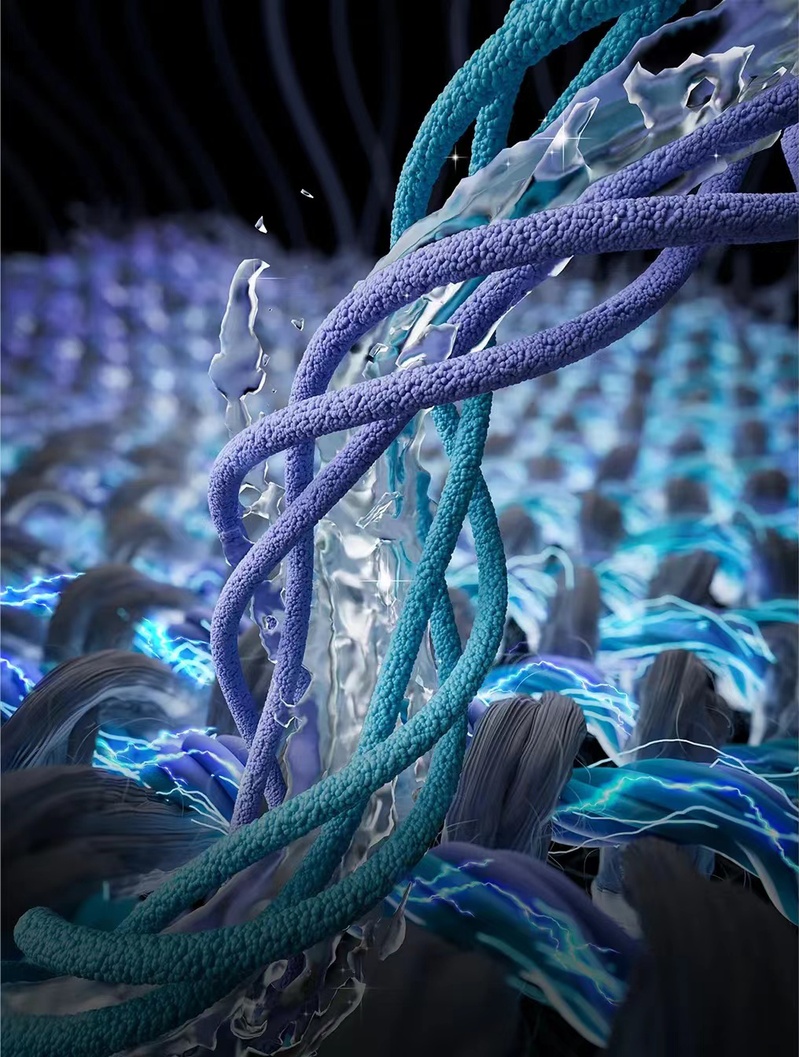
Woven fiber batteries. (PHOTO: FUDAN UNIVERSITY)
By TANG Zhexiao
Researchers from Fudan University in Shanghai have achieved a breakthrough in devising wearable batteries. Users can charge their phones and watches in their handbags and backpacks.
The research, published in Nature recently, designed fiber electrodes with multi-level pore structures, as well as a solution to infiltrate into the pore structure.
The solution, inspired by creeper plants, entails a chemical reaction, forming polymer gel electrolytes that form a tight and stable interface with the fiber electrodes, achieving both high safety and high energy storage performance.
Bags with the fiber batteries can top up a mobile phone wirelessly by 20-30 percent in half an hour, according to one of the team members.
Such wearable fiber batteries have been proved to be robust too. Tests showed they are able to resist 100 washing cycles and 10,000 abrasion cycles, which meet the basic industry standards. A stable power output can be maintained even after bending 100,000 times.
The batteries performed safely and stably in both high and low temperatures, and vacuum environments with external damage, indicating they have the potential to be used in emergency cases, such as fire and disaster relief, and polar and aerospace scientific research, according to the research team.
The trio will conduct a series of experiments in fields such as life science, fluid physics, combustion science and materials science. Notably, this is the first time that fruit flies have been taken on a Chinese space mission as experimental subjects. What made scientists choose fruit flies? What experiment will they undergo?
